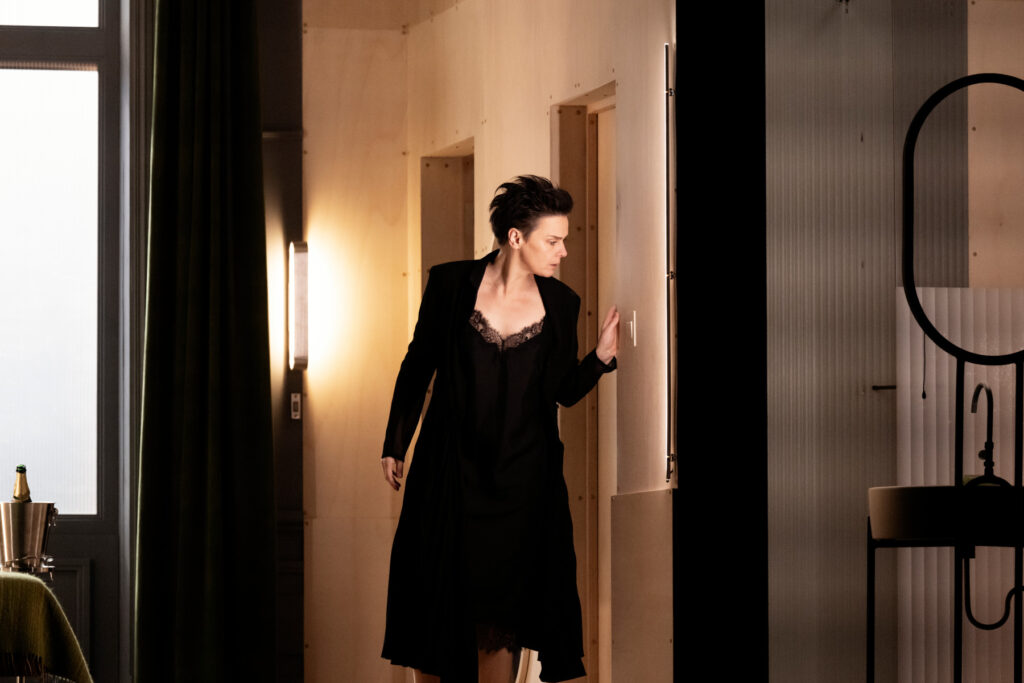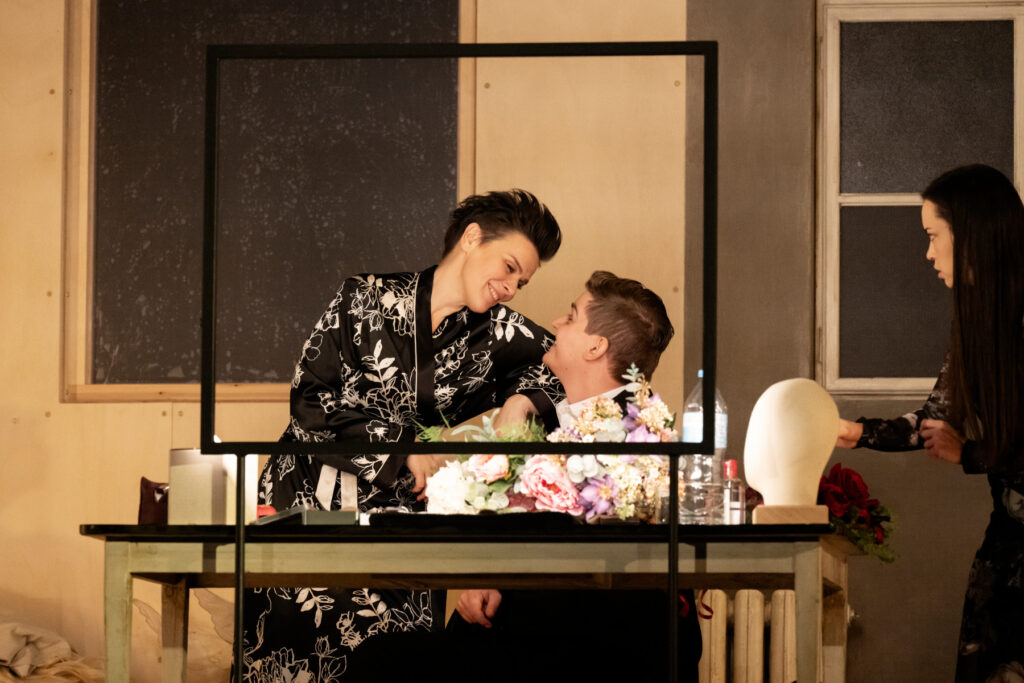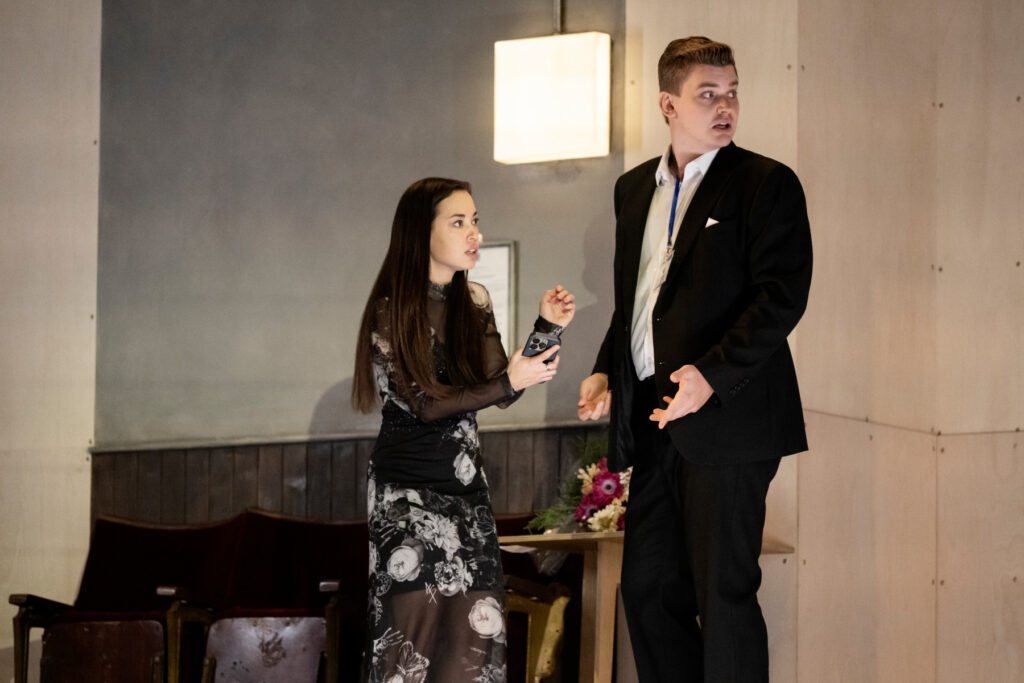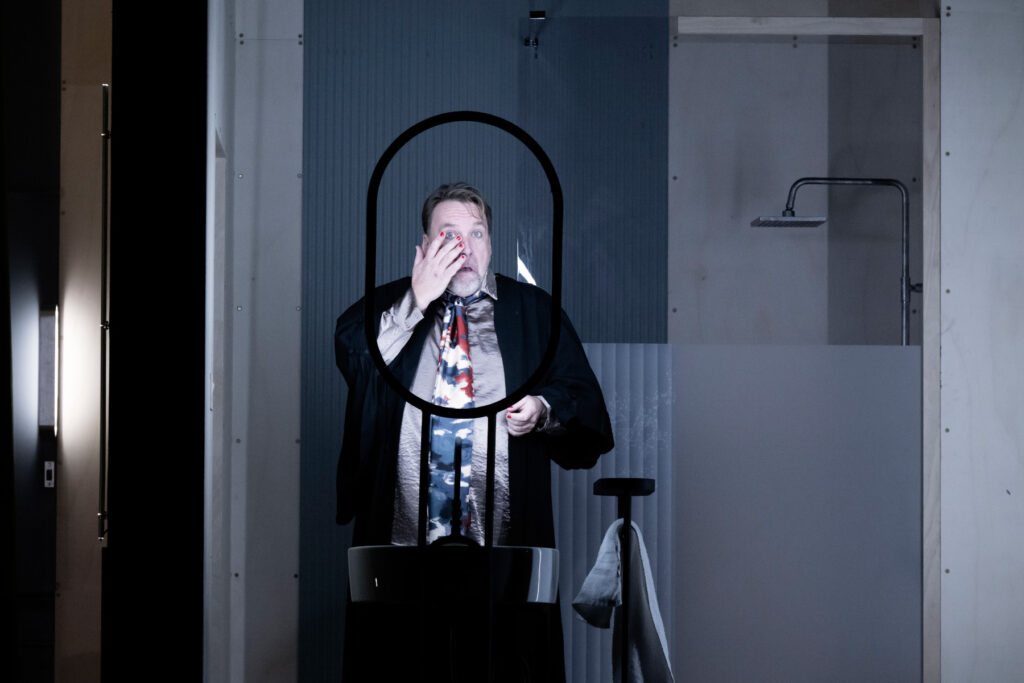Who would want to live for 300 years? That is the question posed by Janáček’s all too rarely seen but fascinating opera The Makropulos Case: initially an open one perhaps, but ultimately answered negatively – and persuasively – by the fantastic fictional case of Emilia Marty. Born as Elina Makropulos in 1585 to the Cretan doctor to Holy Roman Emperor Rudolf II, she was the guinea pig for an experimental elixir of life. For all that the tech billionaires of Silicon Valley desperately seek ways to prolong life (or at least their own well-gilded lives), they don’t answer the question as to what purpose an extended existence might serve. Emilia embodies the problem, having become weary of life and all it has thrown at her. Gerald Manley Hopkins may have found that ‘keep[ing] warm men’s wits to the things that are’ is what mortal beauty serves. But mortal that beauty is nevertheless, and Emilia articulates the unanswerable curse of having outlived, and therefore lost interest in, such transient things of the world.

Appropriately for a drama whose heroine has resigned herself to the end of her overly prolonged life, this production is one of beginnings and endings – the Royal Opera House’s first staging, and the first Janáček opera of Jakub Hrůša’s tenure as music director, although the venue has already been exploring the composer’s output. But it’s also the last operatic production that director Katie Mitchell intends to oversee. She brings to it a characteristically thoughtful, thoroughgoing feminist slant, just as she has sought with other pieces in the operatic canon (for instance, in Lucia di Lammermoor and Theodora at Covent Garden previously). The major adjustment she makes here is to develop and foreground the otherwise peripheral relationship between Emilia, the renowned opera singer, and Krista (Kristina in the original), a young, upcoming one, to explain why Emilia would surrender the elixir’s formula to somebody she apparently knows so little. It’s debatable whether that is a problem – given her disillusion with life, Emilia would surely be all too keen to pass on the accursed formula to anybody near to hand. But her action is also explicable in terms of her insight, gained over time, that it’s precisely the shortness of life which gives sharpness and meaning to what happens in it, and so passes on what she has to the young, new generation to take forward as they think fit.

In any case, if that issue is a red herring, the side plot of a romantic relationship between Emilia and Krista, which Mitchell creates, certainly happens to enrich the drama, drawing it together more coherently and tightly. That idea takes its cue from Jaroslav Prus’s hypocritically prudish comment in act two about Emilia’s ‘exotic’ past love life, which he has gleaned from reading her letters; and from Emilia’s own ironically proud confession later that she has behaved as no lady. Having been opportunistically used and mistreated by men in different eras of her life, there’s an emotional logic that she should now find some romantic rapport with another woman. Although Krista’s intentions are mainly exploitative at first – impelled to steal what she can of Emilia’s valuable possessions by her boyfriend, Janek (the youngest scion of the Prus family fighting the long, ongoing case against the Gregor family), she comes to find some fulfilment in her connection with Emilia by the time of the latter’s death.
That additional narrative layer is achieved through some virtuosic choreography. The three-way relationship among Emilia, Krista, and Janek is developed through text messages (on a dating app, and Whatsapp) projected onto the upper part of the curtain, and through a multi-dimensional stage set that comprises, alternately, two or three rooms side by side with different strands of the story unfolding at once. What could have become a confusing, distracting imposition on the work actually enhances or elucidates its complexities, rather than either diminishing or compounding them. Text messages fit in between passages of sung text, not over it; and video projections of images and reels that are files on Krista’s phone as she rifles through Emilia’s possessions and keepsakes, visualise things and past events which are only alluded to in the dialogue. In an opera that, perhaps notoriously, ranges over such a large period of time – even if only in indirect reference – it’s entirely apt that the production dynamically opens up different theatrical spaces and dimensions by utilising post-modern and contemporary 21st-century dramaturgical techniques. All the more is that a valid strategy since Mitchell adds another century to the saga by bringing the original (set in 1922) forward into our own time, in 2022. The opera is rightly given without an interval, making this a taut 100-minute drama, its threads held together rivetingly.

Vicki Mortimer’s set uses recycled materials, in accordance with Mitchell’s aspiration for more sustainable theatre and stagecraft. Although set in nearly the present day, there is a sense of a slightly faded quality and outdated fashion that aptly mirrors the preternaturally aged Emilia, upon whom the effects of the elixir are starting to wear off. The simple lines and geometric shapes of much of the hotel décor, where the action is largely placed, contrast ironically with the almost baroque complexity of the plot.
The singers attain admirable clarity in a texturally dense music drama. Ausrine Stundyte gives a wonderfully multi-faceted performance as Emilia, often clarion-voiced, but shifting between forbearance and alarm in act one when confronted with the interminable legal case of the title and the young Albert Gregor’s forceful advances; diva-ish acclamation in act two after her appearance on the opera’s metatheatrical stage; and dignified resignation in her final account of herself. Heather Engebretson’s Krista offers well honed contrast with quieter focus, expressive of a certain skittishness but also naivete, played off by Daniel Matoušek’s more resolute Janek. Sean Panikkar yields nothing as Gregor, also impetuous and bubbling up with youthful, lyrical ardour.

Characterful interpretations come from the older, more jaded protagonists – Johan Reuter’s assertive Prus; Peter Hoare’s reedy, earnest legal clerk Vitek; a dry, forthright delivery from Henry Waddington as the lawyer, Dr Kolenatý; and a wheedling, slimy account by Alan Oke of the decrepit Count Hauk-Šendorf, still seeking amorous favours from Emilia. There’s also a notable cameo appearance from Susan Bickley as a humble Stage door woman.
Hrůša maintains a generally measured pace in the music with the Royal Opera House Orchestra, manifesting the glow of human warmth which ultimately wins out at the end of the work. But it’s pointed up with much rhythmic alacrity in the chords and sonorities which rupture through that to give it direction, and in the little themes and motifs which comment humorously, sarcastically, or knowingly on the dialogue, illuminating it like flecks of light.
There was predictable booing in the brief pause between the first two acts and in the applause at the curtain, surely indicative of the misogynistic or at least reactionary boorishness that Mitchell cites as the reason for her moving away from operatic production. If opera singer Emilia’s act of renunciation isn’t Janáček’s implied call for the constant renewing of theatrical conventions, then goodness knows what is. Mitchell’s own withdrawal is certainly opera’s loss. And whatever one makes of her feminist angle on the work, this production grippingly demonstrates both that the work should be pulled into the canon where it barely resides at present, and what theatre should be in the 21st century. It deserves to be seen, more than once even, to absorb fully its insights and riches.
Curtis Rogers
The Makropulos Case
Composer and Libretto: Leoš Janáček after the play by Karel Čapek
Cast and Production Staff:
Emilia Marty – Ausrine Stundyte; Krista – Heather Engebretson; Albert Gregor – Sean Panikkar; Baron Jaroslav Prus – Johan Reuter; Dr Kolenatý – Henry Waddington; Vítek – Peter Hoare; Count Hauk-Šendorf – Alan Oke; Janek – Daniel Matoušek; Stage door woman – Susan Bickley; Security guard – Jeremy White; Hotel Maid – Jingwen Cai
Director – Katie Mitchell; Designer – Vicki Mortimer; Costume Designer – Sussie Juhlin-Wallén; Lighting – James Farncombe; Video Designer – Sasha Balmazi-Owen; Conductor – Jakub Hrůša; Royal Opera Chorus and Orchestra
Royal Opera House, Covent Garden, London, Tuesday 4 November 2025
Top image: Ausrine Stundyte as Emilia Marty and Heather Engebretson as Krista
All photos ©2025 Camilla Greenwell